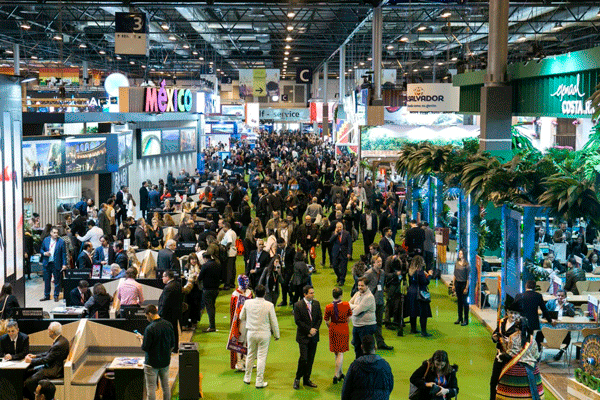Horror in Russia; St Petersburg metro bombing a possible suicide attack; World leaders have rallied
- 3 abr 2017
- 4 Min. de lectura

The St Petersburg metro explosion was caused by a bomb possibly detonated by a man whose body parts were found on the train, Russian investigators say.
Monday's blast between two stations killed 14 people and injured almost 50.
Kyrgyzstan's security service named the suspect as Akbarzhon Jalilov, who was born in the Kyrgyz city of Osh in 1995 and had obtained Russian citizenship.
His name was later confirmed by Russian investigators, who said he also planted a second bomb that did not explode.
In an earlier statement, the Russian state investigative committee said it had concluded the train bomb may have been detonated by a man whose remains were found in the carriage.
No group has said it was behind the bombing.
In other developments:
Details are emerging of the victims, 10 of whom have now been named by Russia's investigative committee. They include two teenagers and a man in his 70s
Further information has been disclosed about the train driver hailed a hero (see below in this article)
Health Minister Veronika Skvortsova said the death toll had risen from 11 to 14 after three people died in hospital
Foreign Minister Sergei Lavrov, at a meeting with his Kyrgyz counterpart Erlan Abdyldayev, said the attack "once again shows the importance of stepping up joint efforts to combat this evil"
Authorities in St Petersburg have declared three days of mourning
The metro here is open again, but passengers heading into the stations at the heart of the attack pass a huge pile of flowers. People here at Sennaya Ploshchad have been adding to the shrine all morning, leaving notes and stuffed toys and lighting candles.
This is a city trying to get back to normal, but there is deep shock at what's happened.
I spoke to women in tears. One told me she felt she had to bring flowers because this attack was so awful, and her mother was horrified at how random the killing was. "Everyone I know is fine," Irina said. "But it could have been any one of us."
There were bomb scares on the metro system again this morning, and several stations were closed and cordoned off as security teams moved in. It is another sign that this is a city on edge now.
The White House said President Donald Trump had spoken to Mr Putin by phone and offered "full support" in bringing those responsible to justice
German Chancellor Angela Merkel described the blast as a "barbaric act"
UK Prime Minister Theresa May said she had written to President Putin to offer her condolences. "This shows the terrible terrorist threat that we are all facing," she added.
The head of Russia's National Anti-Terrorist Committee said the blast hit a train between Sennaya Ploshchad and Tekhnologichesky Institut stations.
The committee said an explosive device was later found and made safe at another station nearby.
Prime Minister Dmitry Medvedev said in a Facebook post that the explosion was a "terrorist attack".
An anti-terror investigation has been opened, but other possible causes are being investigated.
The first images posted on social media showed a train at a platform in Tekhnologichesky Institut station with a hole blown in its side, along with a number of casualties.
Initial reports suggested there had been two explosions, one each at Sennaya Ploshchad and Tekhnologichesky Institut stations.
But the Russian National Anti-Terrorist Committee later confirmed there had been only one explosion, between the two stations, at about 14:30 local time (11:30 GMT).
Senior investigator Svetlana Petrenko told Russian media the train driver's decision to continue to the next station almost certainly helped save lives, as it allowed people to be rescued quickly.Health Minister Veronika Skvortsova said 10 people had died - seven at the scene, one in an ambulance and two in hospital - and that 37 people were hurt.

What was the cause?
Andrei Przhezdomsky, the head of the National Anti-Terrorist Committee, said the explosion was caused by "an unidentified explosive device" but that the exact cause had yet to be determined.
President Vladimir Putin said all causes, especially terrorism, were being investigated. He was in St Petersburg at the time of the blast, his spokesman Dmitry Peskov said.
The discovery of an explosive device at another station, Ploshchad Vosstaniya, indicates the attack was deliberate, and reports in Russia say the explosion came from a briefcase left on the train.
Who might be behind the blast? Analysis by Frank Gardner, BBC Security Correspondent
The Russian authorities are sensibly being cautious before apportioning blame for Monday's metro blast. An earlier quote by the prosecutor-general that it was an act of terrorism was quickly retracted.
The FSB security service, the successors to the Soviet-era KGB, have skilled investigators, including forensic explosive experts. They will have been examining security camera footage and the explosive residue for clues, as well as the second device that was found intact and defused.
Their suspicions are likely to focus on two possible suspects, neither yet confirmed. First, an IS-inspired group enraged by recent Russian airstrikes in Syria. And second, Chechen nationalists (or even a combination of both).
Chechen militants and international jihadists do have a track record of plotting to attack Russia's transport hubs, notably in Moscow. An estimated 7,000 Russians have travelled to Syria to join extremist groups - and some have returned.

Tributes to the victims are being placed outside Sennaya Ploshchad station
St Petersburg's metro system is the 19th busiest in the world, with more than two million passengers every day, but it has not suffered attacks before.
Several transport hubs in Russia have, however, been attacked. In 2010, 38 people died in a double suicide bombing on the Moscow metro.
And a year later, a bomb exploded on a high-speed train travelling between Moscow and St Petersburg, killing 27 and injuring another 130.
Both attacks were claimed by Islamist groups.

Pablo Marin /International Executive Director
Mariana DAngelo´s Newspapers


























































































































.jpg)


























































































































Comentarios